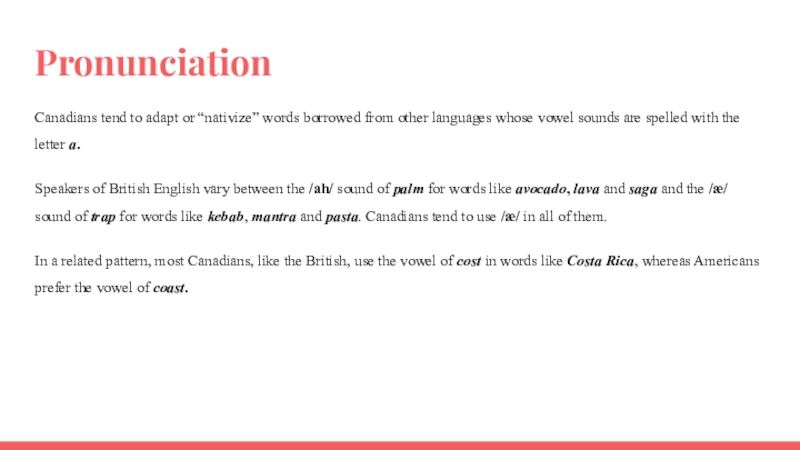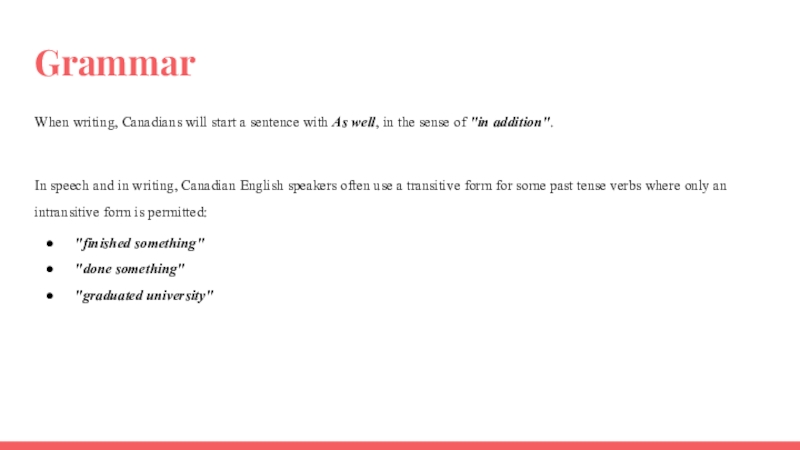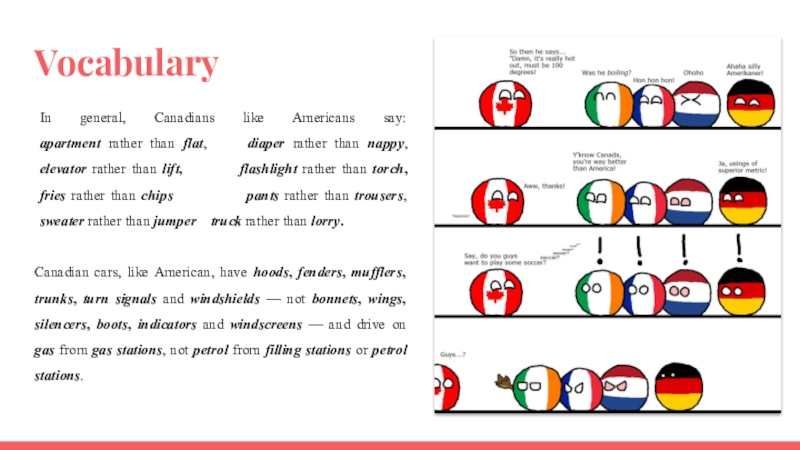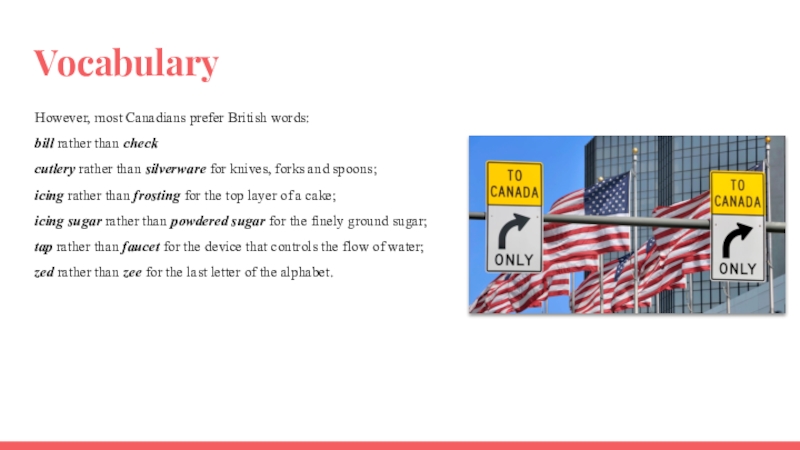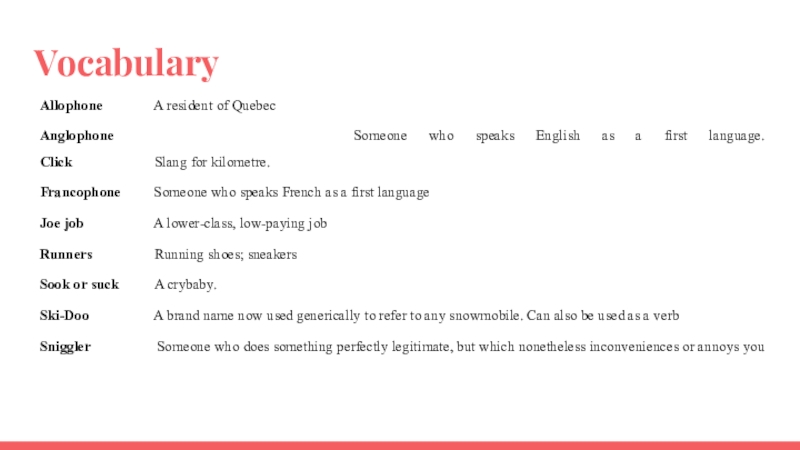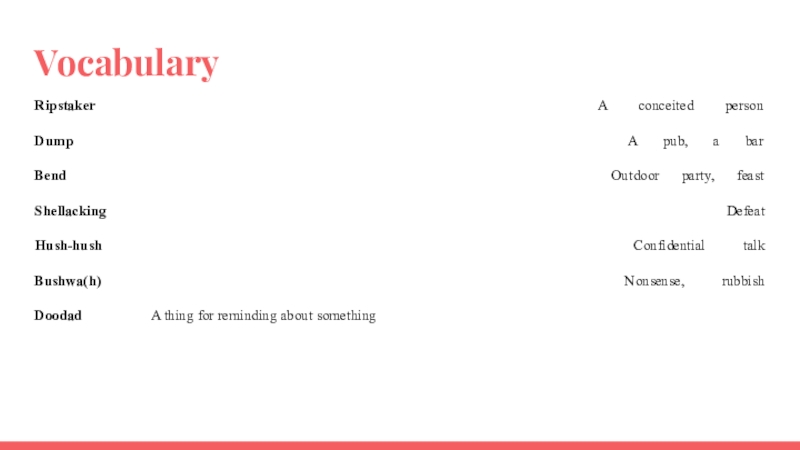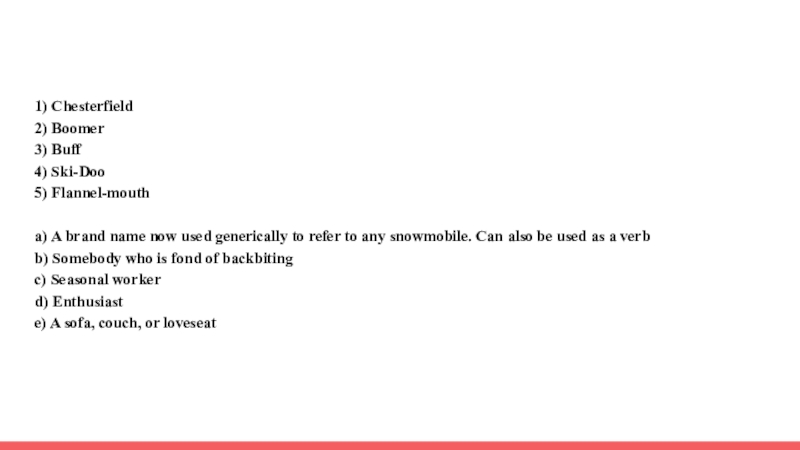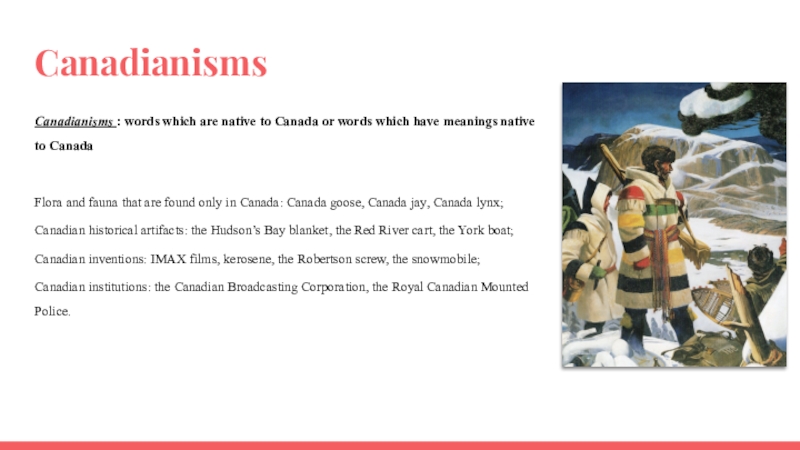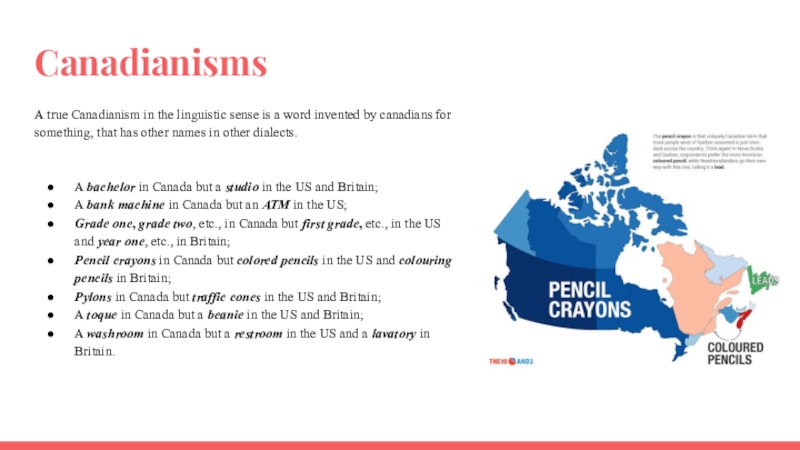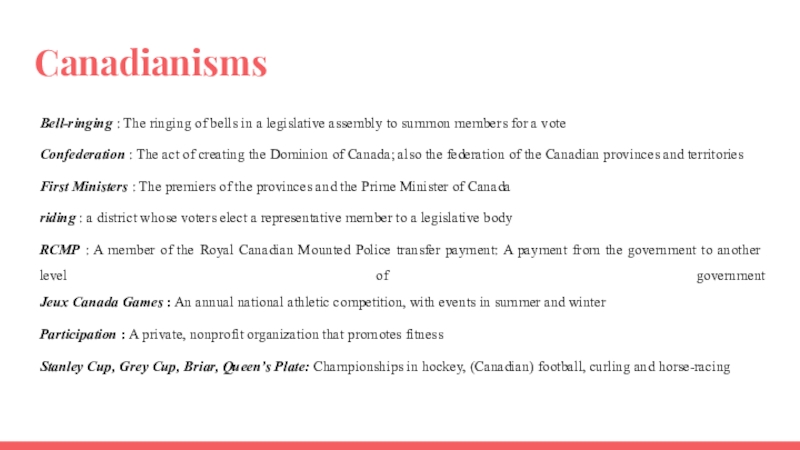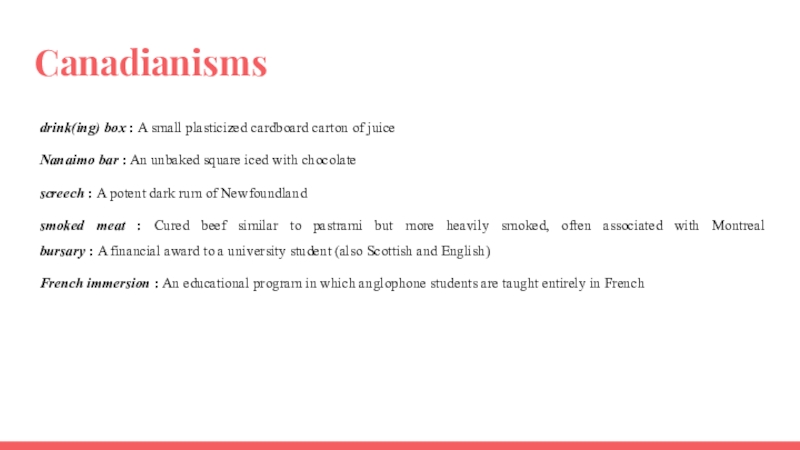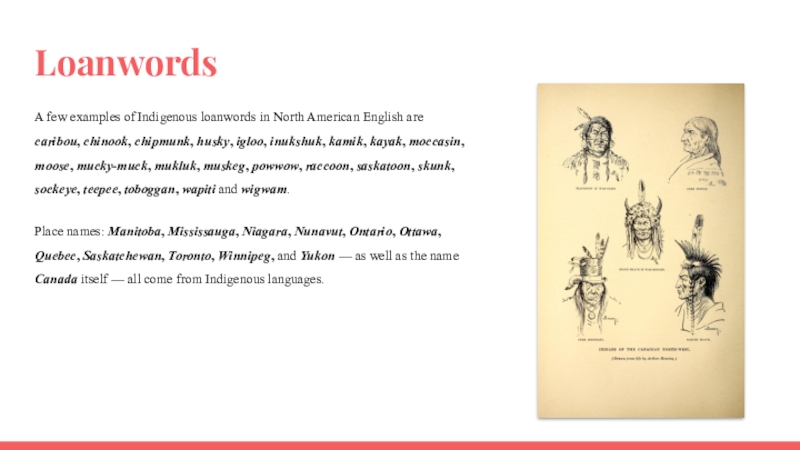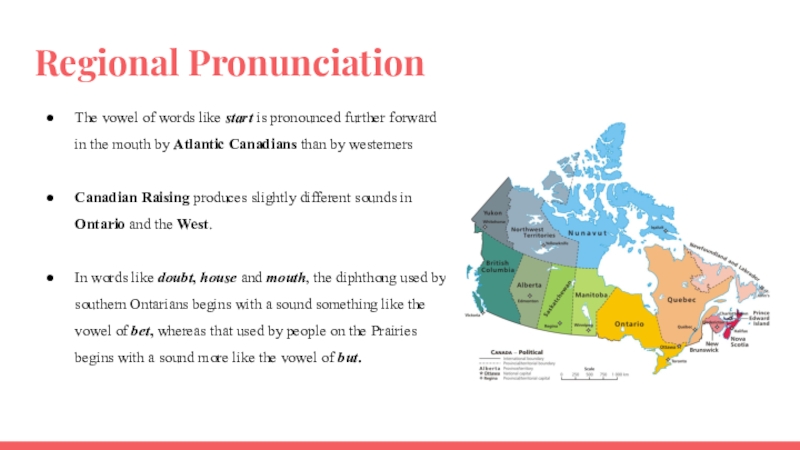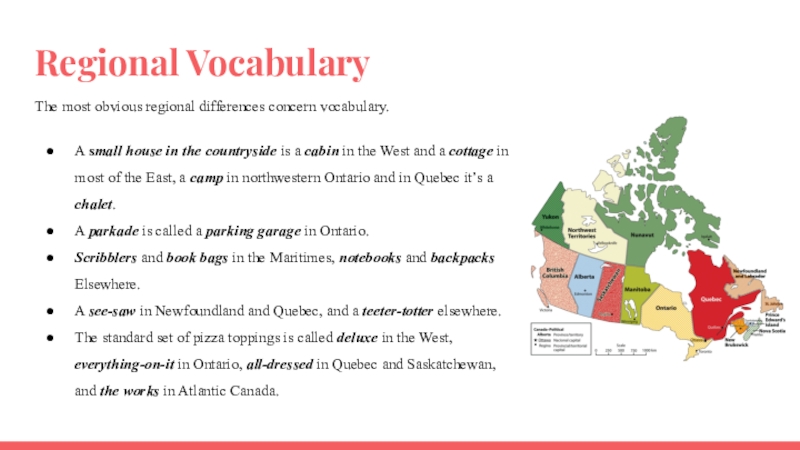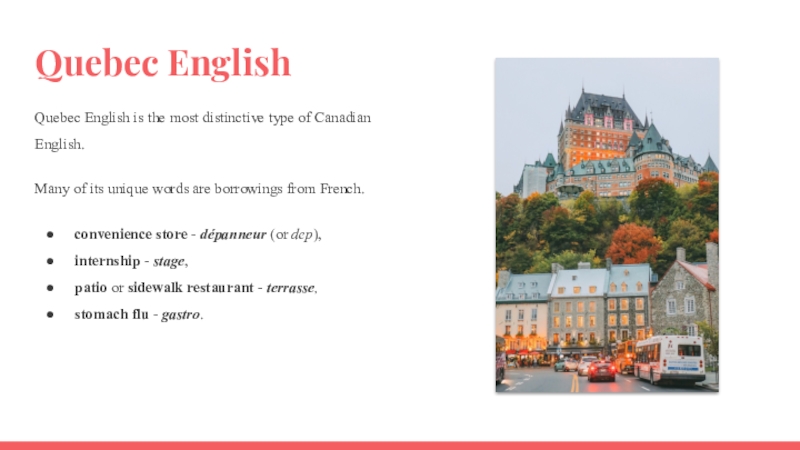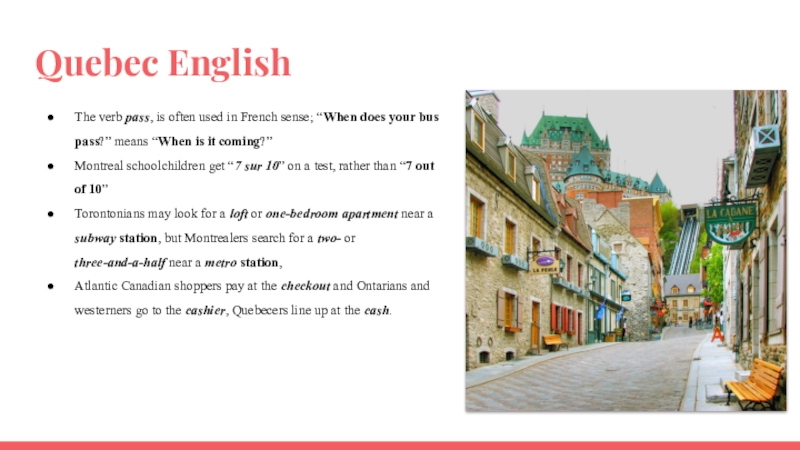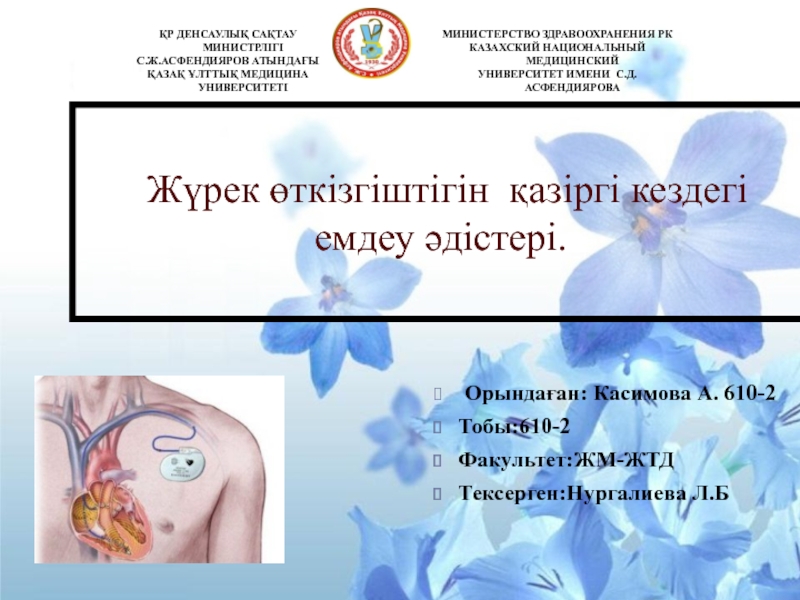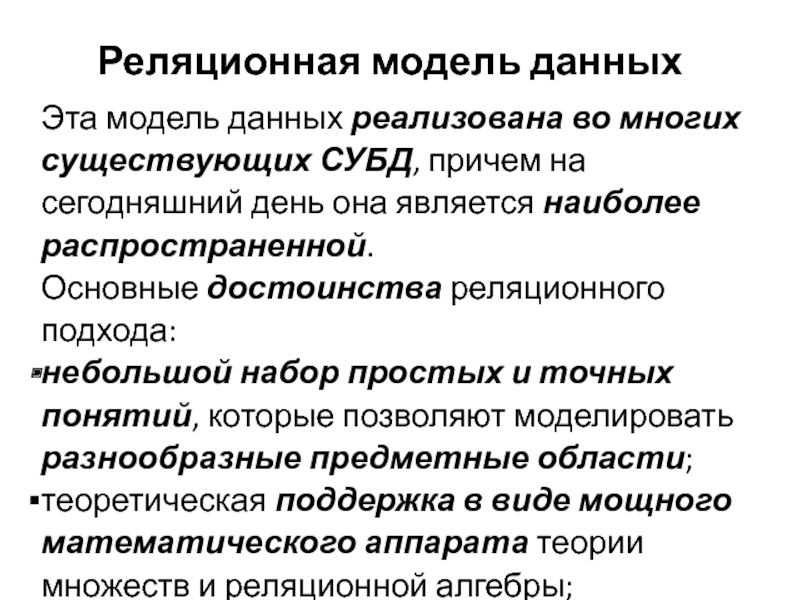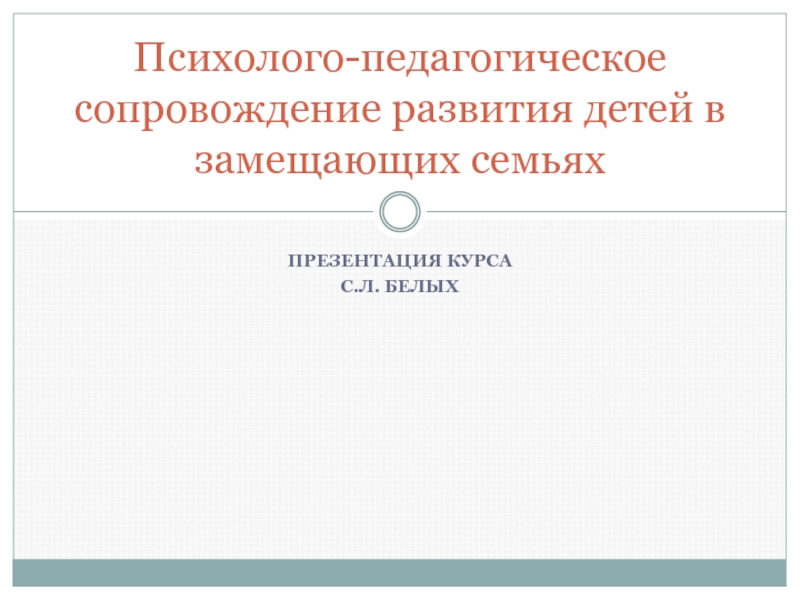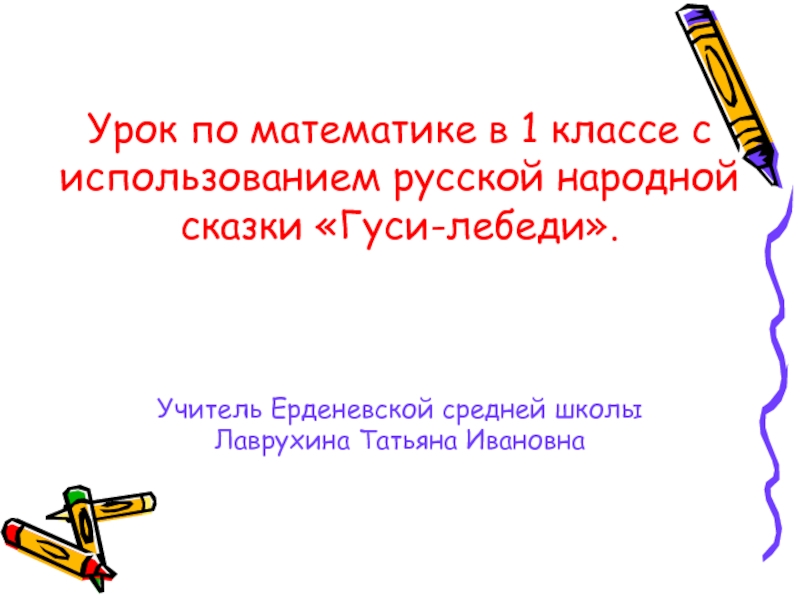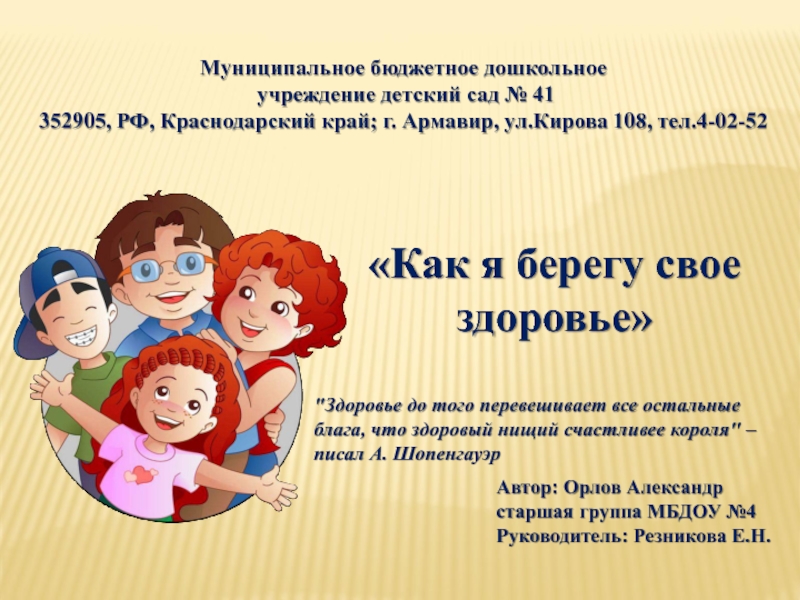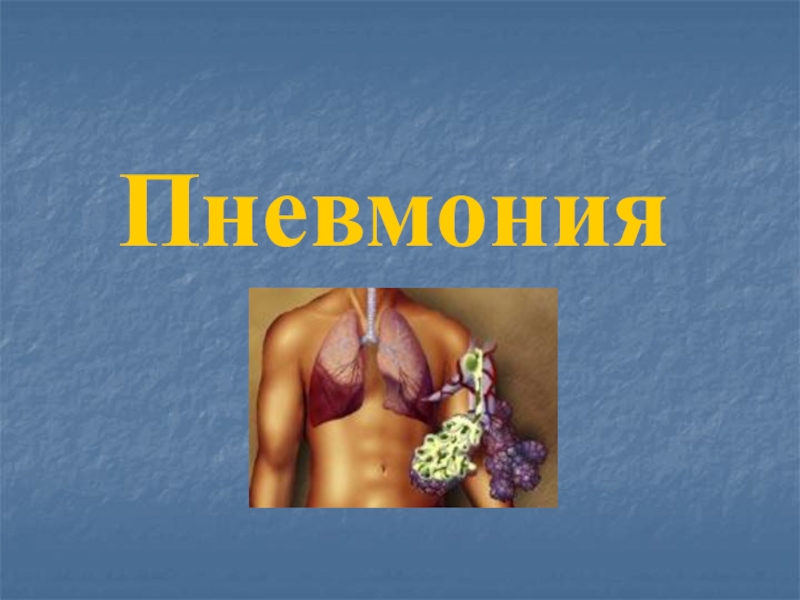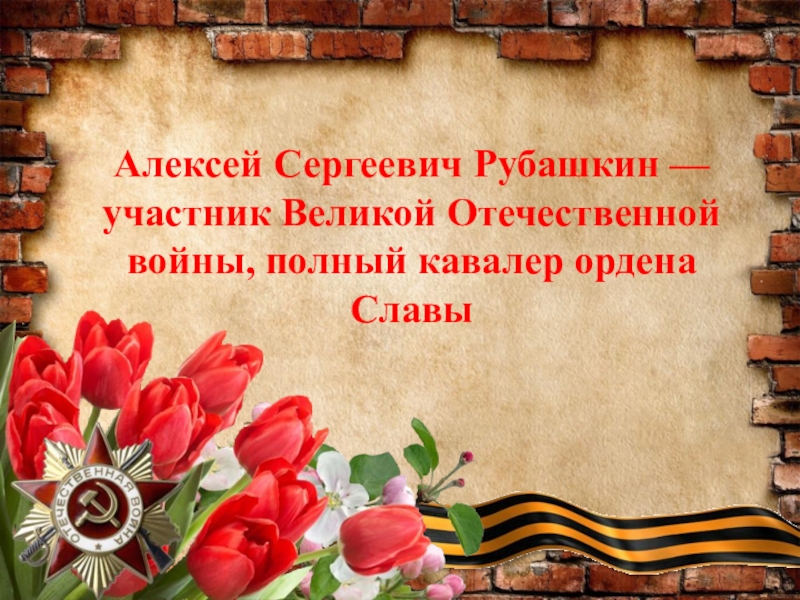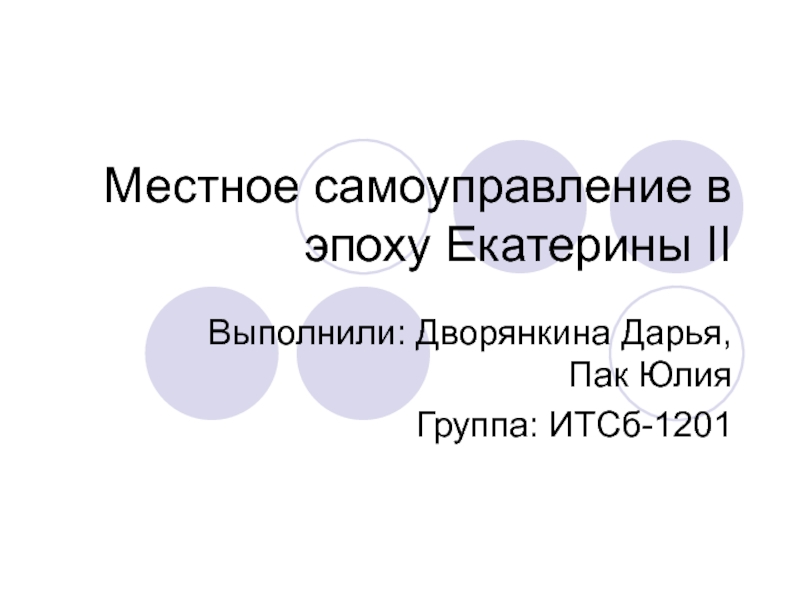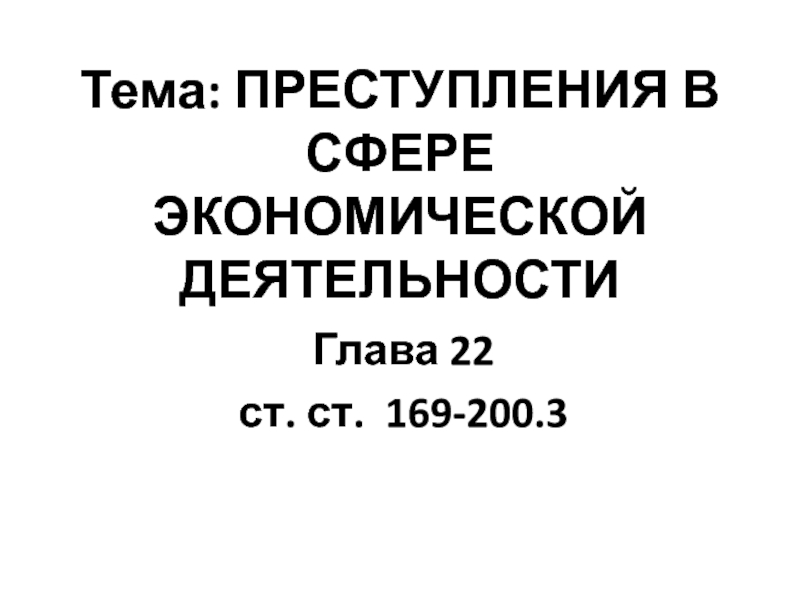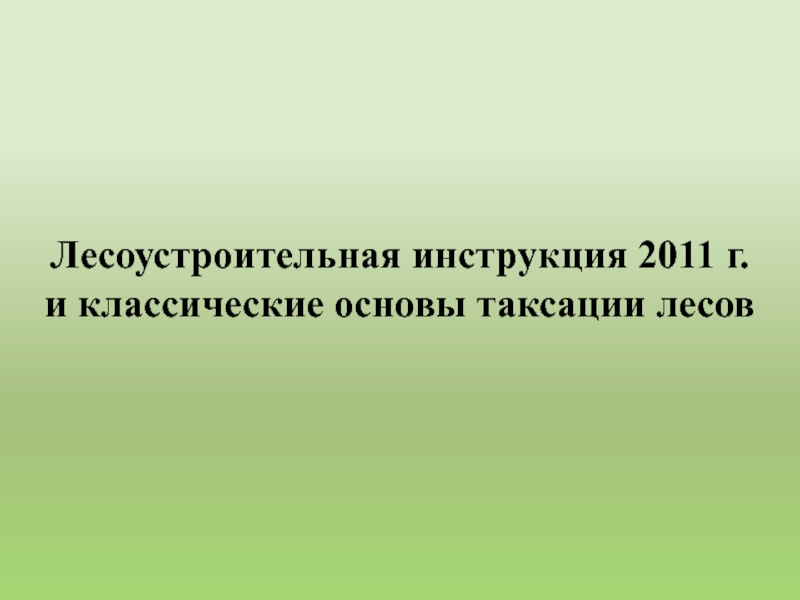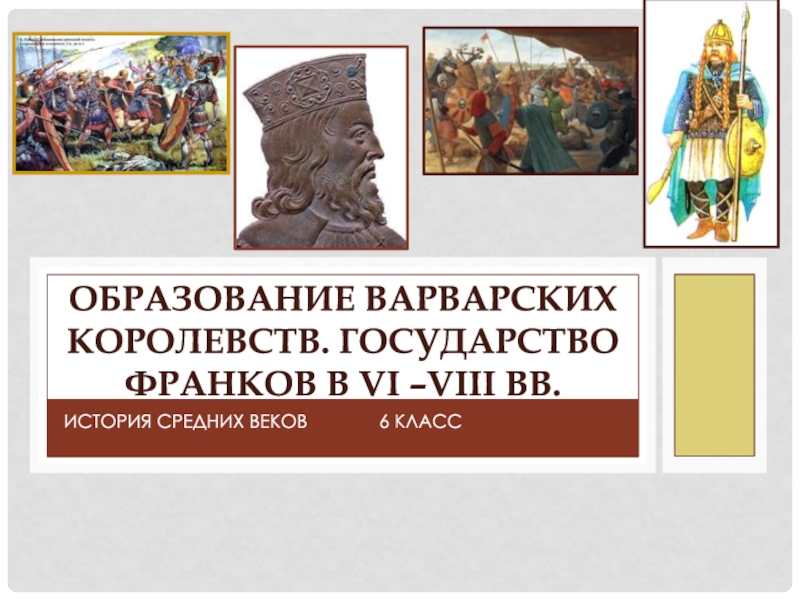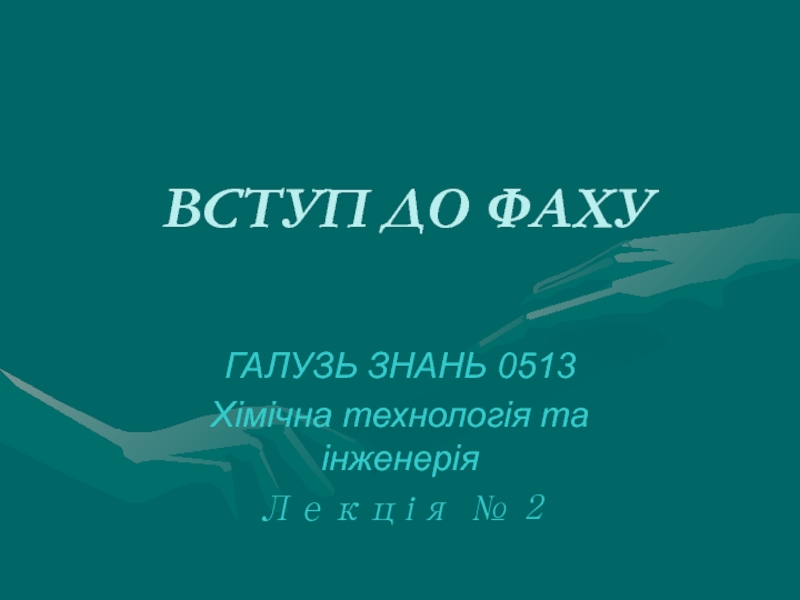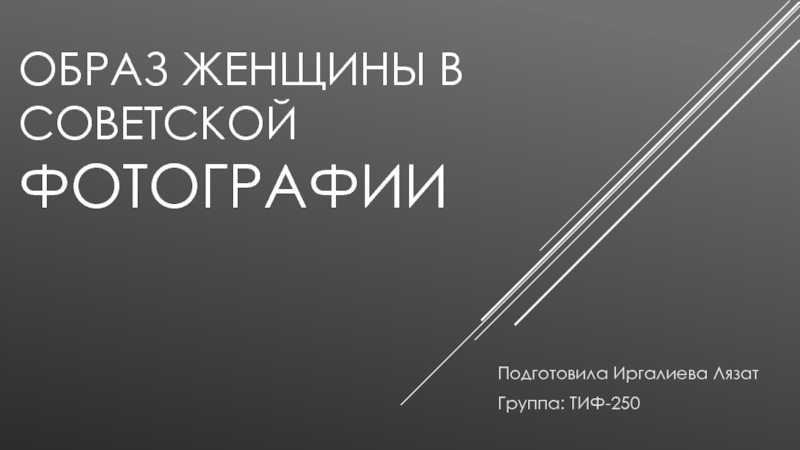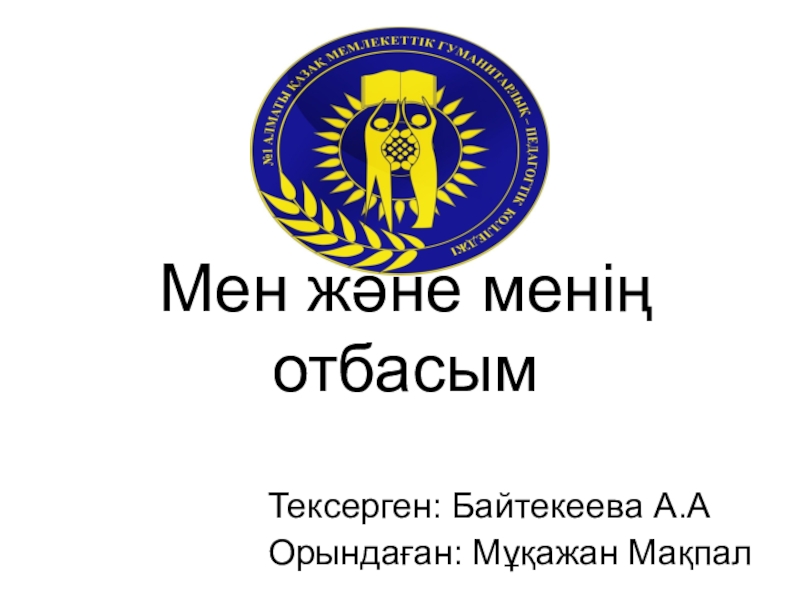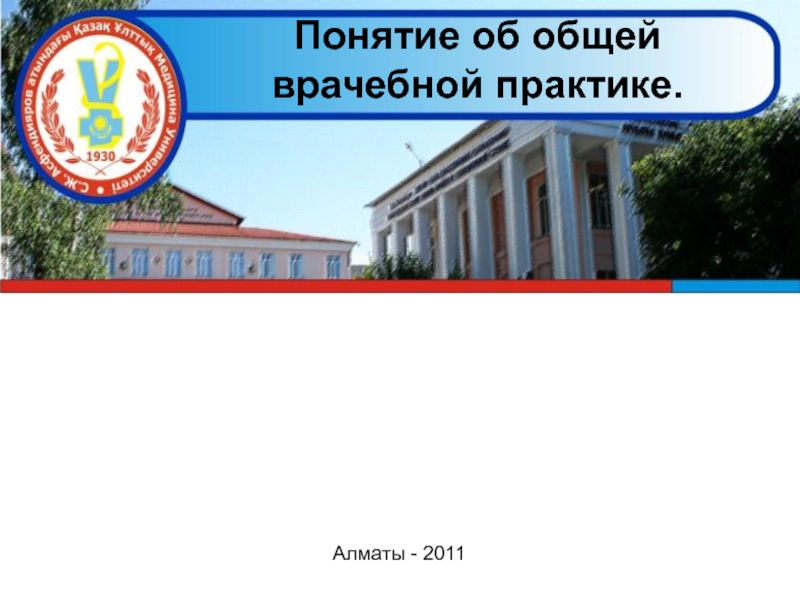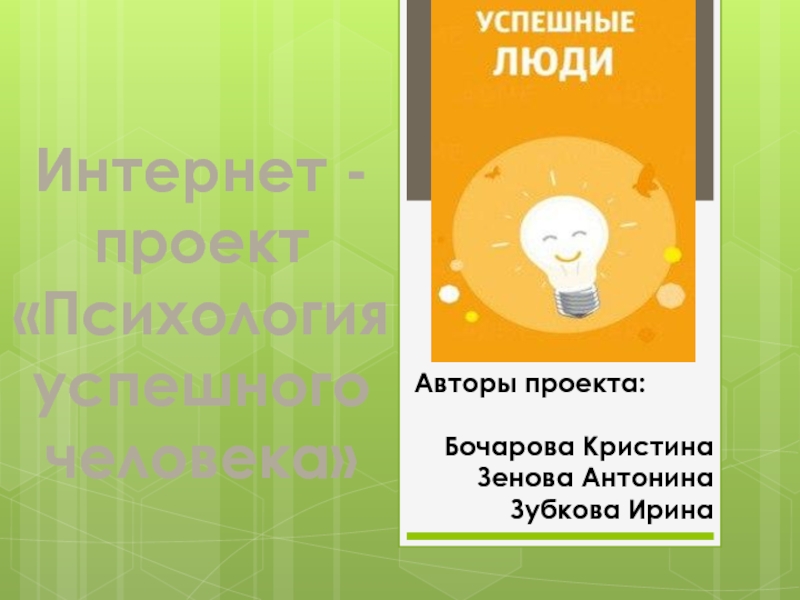Разделы презентаций
- Разное
- Английский язык
- Астрономия
- Алгебра
- Биология
- География
- Геометрия
- Детские презентации
- Информатика
- История
- Литература
- Математика
- Медицина
- Менеджмент
- Музыка
- МХК
- Немецкий язык
- ОБЖ
- Обществознание
- Окружающий мир
- Педагогика
- Русский язык
- Технология
- Физика
- Философия
- Химия
- Шаблоны, картинки для презентаций
- Экология
- Экономика
- Юриспруденция
CANADIAN ENGLISH
Содержание
- 1. CANADIAN ENGLISH
- 2. IntroductionEnglish is the second most widely spoken
- 3. IntroductionEnglish is the majority language in every
- 4. IntroductionIn Toronto and Vancouver, high levels of
- 5. HistoryThe Treaty of Paris of 1763, The American Revolution of 1775–83,The Industrial Revolution in Britain.
- 6. Modern Canadian EnglishMore recent immigration to Canada
- 7. Spelling“-our” spellings in words like color, labor
- 8. SpellingMost linguists agree that the main characteristic
- 9. PronunciationCanadian Raising: a shortening of the diphthongs
- 10. PronunciationThe distribution of pre-rhotic (before-r) vowels: substituting
- 11. PronunciationThe low-back merger is a collapse of
- 12. PronunciationCanadians tend to adapt or “nativize” words
- 13. PronunciationThe most popular stereotype of Canadian English
- 14. GrammarWhen writing, Canadians will start a sentence
- 15. VocabularyIn general, Canadians like Americans say: apartment
- 16. VocabularyHowever, most Canadians prefer British words:
- 17. VocabularyAllophone A
- 18. VocabularyRipstaker
- 19. 1) Chesterfield 2) Boomer 3) Buff
- 20. CanadianismsCanadianisms : words which are native to
- 21. CanadianismsA true Canadianism in the linguistic sense
- 22. CanadianismsBell-ringing : The ringing of bells in
- 23. Canadianisms drink(ing) box : A small plasticized
- 24. LoanwordsA few examples of Indigenous loanwords in
- 25. Regional PronunciationThe vowel of words like start
- 26. Regional VocabularyThe most obvious regional differences concern
- 27. Quebec EnglishQuebec English is the most distinctive
- 28. Quebec EnglishThe verb pass, is often used
- 29. Слайд 29
- 30. Скачать презентанцию
IntroductionEnglish is the second most widely spoken language in the world. It is accorded as the official language of The United Kingdom, Ireland, The United States, Canada, Jamaica, South Africa, Australia
Слайды и текст этой презентации
Слайд 3Introduction
English is the majority language in every Canadian province and
territory except Quebec and Nunavut. English is spoken as a
mother tongue by over 30 million Canadians. Canadian English is a mixture of American and British.The Eastern provinces of Newfoundland and Labrador, Nova Scotia and Prince Edward Island have a maritime accent which overall sounds more similar to Irish pronunciation than American. There is also some French influence exerted on pronunciation for some English-speaking Canadians.
Слайд 4Introduction
In Toronto and Vancouver, high levels of immigration from non–English-speaking
countries have reduced the proportion of native speakers of English.
Not all native speakers of English in Canada are native speakers of Canadian English; some are immigrants who grew up in other English-speaking countries and therefore speak other types of English.Слайд 5History
The Treaty of Paris of 1763,
The American Revolution of
1775–83,
The Industrial Revolution in Britain.
Слайд 6Modern Canadian English
More recent immigration to Canada has had comparatively
little effect on the development of Canadian English.
With such a
large Canadian-born population to blend into, the children of today’s immigrants rapidly assimilate to the patterns of the English already spoken by the majority of people in their adopted communities. Nevertheless, Canadian English, like all dialects and languages, continues to evolve.
Слайд 7Spelling
“-our” spellings in words like color, labor and vigor
“-re” spellings
in center, fiber and theater
cheque over American check, grey
over gray and travelled over traveled British catalogue to American catalog
American program to British programme
British defence and American defense
Most Canadians prefer odor and favorite over odour and favourite, kerb for curb and tyre for tire, some foreign-influenced spellings of fancy words like analyse, criticise, paediatrics.
Слайд 8Spelling
Most linguists agree that the main characteristic of Canadian spelling
is the absence of any consistent pattern, with choices between
American and British forms varying by word, context, publication, genre, region and social group.As a result Canadian writers, editors and other language professionals face sometimes uncertainties that do not burden their British or American colleagues, at least not to the same extent.
Слайд 9Pronunciation
Canadian Raising: a shortening of the diphthongs in words like
price and mouth, causing the vowel to be produced somewhat
higher in the mouth than in other dialects.Canadian Raising only occurs before the voiceless consonants /p/, /t/, /k/, /f/, /th/ and /s/ and distinguishes the raised and unraised vowels in pairs of words like type, tie, write, ride, spike, spy, shout, loud, south, sound, or house .
Слайд 10Pronunciation
The distribution of pre-rhotic (before-r) vowels: substituting [a] for [o]
before inter-vocalic [r].
In a number of highly frequent words,
such as “sorry”, “tomorrow”, “borrow”, “sorrow”, and “Laura”, this pattern has become obligatory in American English. The pattern is also variably evident in a few more words, such as “Florida”, “orange”, “oracle”, “Norwich”, “adorable”, and “thesaurus”. Слайд 11Pronunciation
The low-back merger is a collapse of the distinction between
two vowels pronounced in the lower-back part of the mouth
— like lot versus thought. These sound different in Britain and in parts of the eastern United States. In Canada they sound the same; lot and thought rhyme, while cot and caught, stock and stalk and don and dawn are homophones. The Canadian Shift: a change in modern Canadian English that involves a lowering and retraction of the short front vowels in words like kit, dress and trap. For instance, head may sound something like had in other dialects, while hat may have the same vowel quality as many Americans’ pronunciation of hot.Слайд 12Pronunciation
Canadians tend to adapt or “nativize” words borrowed from other
languages whose vowel sounds are spelled with the letter a.
Speakers of British English vary between the /ah/ sound of palm for words like avocado, lava and saga and the /æ/ sound of trap for words like kebab, mantra and pasta. Canadians tend to use /æ/ in all of them.
In a related pattern, most Canadians, like the British, use the vowel of cost in words like Costa Rica, whereas Americans prefer the vowel of coast.
Слайд 13Pronunciation
The most popular stereotype of Canadian English is the word
eh, added to the end of a phrase to solicit
confirmation that the hearer has understood or agrees with what the speaker is saying. “The game starts in half an hour, eh? So we have to leave now.” “Put your jacket on, eh? It’s cold outside.” “Let’s go have some lunch, eh?”Слайд 14Grammar
When writing, Canadians will start a sentence with As well,
in the sense of "in addition".
In speech and in writing,
Canadian English speakers often use a transitive form for some past tense verbs where only an intransitive form is permitted:"finished something"
"done something"
"graduated university"
Слайд 15Vocabulary
In general, Canadians like Americans say:
apartment rather than flat,
diaper rather than nappy, elevator rather than lift,
flashlight rather than torch, fries rather than chips pants rather than trousers, sweater rather than jumper truck rather than lorry.Canadian cars, like American, have hoods, fenders, mufflers, trunks, turn signals and windshields — not bonnets, wings, silencers, boots, indicators and windscreens — and drive on gas from gas stations, not petrol from filling stations or petrol stations.
Слайд 16Vocabulary
However, most Canadians prefer British words:
bill rather than check
cutlery
rather than silverware for knives, forks and spoons; icing rather
than frosting for the top layer of a cake; icing sugar rather than powdered sugar for the finely ground sugar; tap rather than faucet for the device that controls the flow of water; zed rather than zee for the last letter of the alphabet.Слайд 17Vocabulary
Allophone A resident of Quebec
Anglophone Someone who speaks English
as a first language.
Click Slang for kilometre.Francophone Someone who speaks French as a first language
Joe job A lower-class, low-paying job
Runners Running shoes; sneakers
Sook or suck A crybaby.
Ski-Doo A brand name now used generically to refer to any snowmobile. Can also be used as a verb
Sniggler Someone who does something perfectly legitimate, but which nonetheless inconveniences or annoys you
Слайд 18Vocabulary
Ripstaker A conceited
person Dump
A pub, a bar Bend Outdoor party, feast Shellacking Defeat Hush-hush Confidential talk Bushwa(h) Nonsense, rubbish Doodad A thing for reminding about somethingСлайд 19
1) Chesterfield
2) Boomer
3) Buff
4) Ski-Doo
5) Flannel-mouth
a) A brand name
now used generically to refer to any snowmobile. Can also
be used as a verb b) Somebody who is fond of backbiting c) Seasonal worker d) Enthusiast e) A sofa, couch, or loveseatСлайд 20Canadianisms
Canadianisms : words which are native to Canada or words
which have meanings native to Canada
Flora and fauna that are
found only in Canada: Canada goose, Canada jay, Canada lynx; Canadian historical artifacts: the Hudson’s Bay blanket, the Red River cart, the York boat;
Canadian inventions: IMAX films, kerosene, the Robertson screw, the snowmobile;
Canadian institutions: the Canadian Broadcasting Corporation, the Royal Canadian Mounted Police.
Слайд 21Canadianisms
A true Canadianism in the linguistic sense is a word
invented by canadians for something, that has other names in
other dialects.A bachelor in Canada but a studio in the US and Britain;
A bank machine in Canada but an ATM in the US;
Grade one, grade two, etc., in Canada but first grade, etc., in the US and year one, etc., in Britain;
Pencil crayons in Canada but colored pencils in the US and colouring pencils in Britain;
Pylons in Canada but traffic cones in the US and Britain;
A toque in Canada but a beanie in the US and Britain;
A washroom in Canada but a restroom in the US and a lavatory in Britain.
Слайд 22Canadianisms
Bell-ringing : The ringing of bells in a legislative assembly
to summon members for a vote
Confederation : The act of
creating the Dominion of Canada; also the federation of the Canadian provinces and territoriesFirst Ministers : The premiers of the provinces and the Prime Minister of Canada
riding : a district whose voters elect a representative member to a legislative body
RCMP : A member of the Royal Canadian Mounted Police transfer payment: A payment from the government to another level of government Jeux Canada Games : An annual national athletic competition, with events in summer and winter
Participation : A private, nonprofit organization that promotes fitness
Stanley Cup, Grey Cup, Briar, Queen’s Plate: Championships in hockey, (Canadian) football, curling and horse-racing
Слайд 23Canadianisms
drink(ing) box : A small plasticized cardboard carton of
juice
Nanaimo bar : An unbaked square iced with chocolate
screech :
A potent dark rum of Newfoundlandsmoked meat : Cured beef similar to pastrami but more heavily smoked, often associated with Montreal bursary : A financial award to a university student (also Scottish and English)
French immersion : An educational program in which anglophone students are taught entirely in French
Слайд 24Loanwords
A few examples of Indigenous loanwords in North American English
are caribou, chinook, chipmunk, husky, igloo, inukshuk, kamik, kayak, moccasin,
moose, mucky-muck, mukluk, muskeg, powwow, raccoon, saskatoon, skunk, sockeye, teepee, toboggan, wapiti and wigwam.Place names: Manitoba, Mississauga, Niagara, Nunavut, Ontario, Ottawa, Quebec, Saskatchewan, Toronto, Winnipeg, and Yukon — as well as the name Canada itself — all come from Indigenous languages.
Слайд 25Regional Pronunciation
The vowel of words like start is pronounced further
forward in the mouth by Atlantic Canadians than by westerners
Canadian
Raising produces slightly different sounds in Ontario and the West.In words like doubt, house and mouth, the diphthong used by southern Ontarians begins with a sound something like the vowel of bet, whereas that used by people on the Prairies begins with a sound more like the vowel of but.
Слайд 26Regional Vocabulary
The most obvious regional differences concern vocabulary.
A small
house in the countryside is a cabin in the West
and a cottage in most of the East, a camp in northwestern Ontario and in Quebec it’s a chalet.A parkade is called a parking garage in Ontario.
Scribblers and book bags in the Maritimes, notebooks and backpacks Elsewhere.
A see-saw in Newfoundland and Quebec, and a teeter-totter elsewhere.
The standard set of pizza toppings is called deluxe in the West, everything-on-it in Ontario, all-dressed in Quebec and Saskatchewan, and the works in Atlantic Canada.
Слайд 27Quebec English
Quebec English is the most distinctive type of Canadian
English.
Many of its unique words are borrowings from French.
convenience store - dépanneur (or dep),
internship - stage,
patio or sidewalk restaurant - terrasse,
stomach flu - gastro.
Слайд 28Quebec English
The verb pass, is often used in French sense;
“When does your bus pass?” means “When is it coming?”
Montreal schoolchildren get “7 sur 10” on a test, rather than “7 out of 10”
Torontonians may look for a loft or one-bedroom apartment near a subway station, but Montrealers search for a two- or three-and-a-half near a metro station,
Atlantic Canadian shoppers pay at the checkout and Ontarians and westerners go to the cashier, Quebecers line up at the cash.
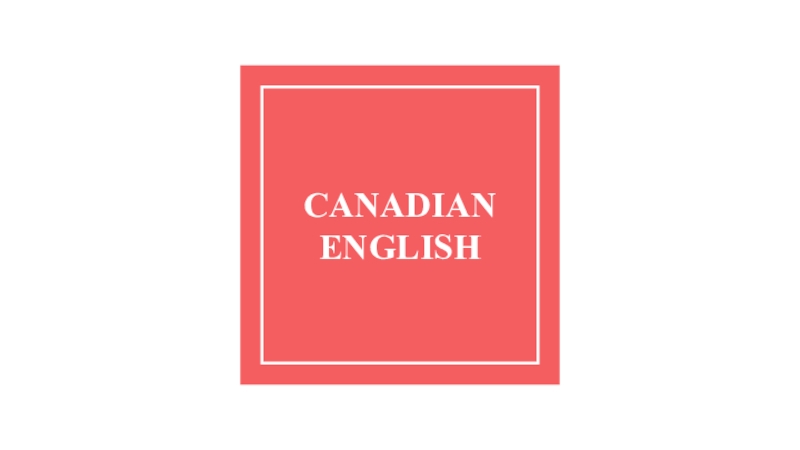
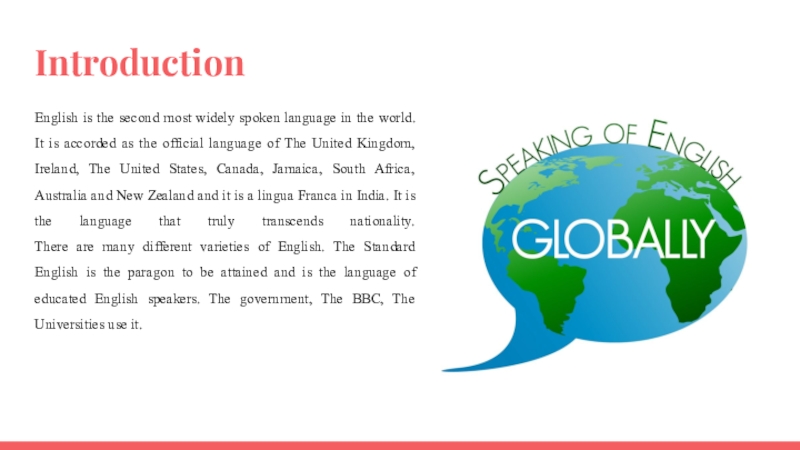
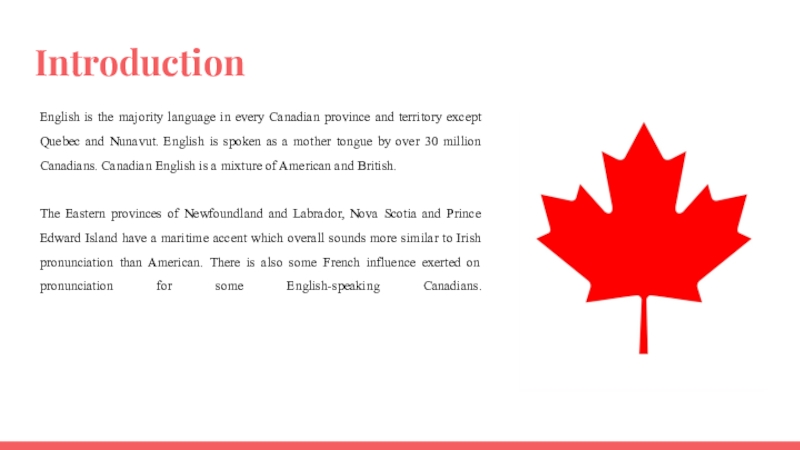
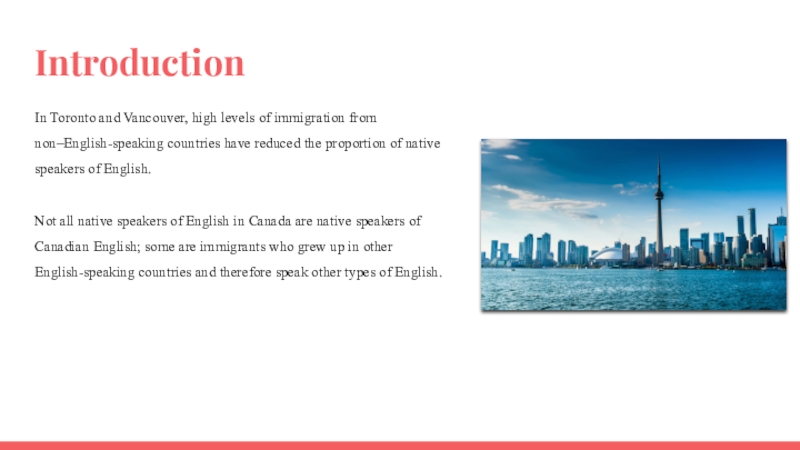
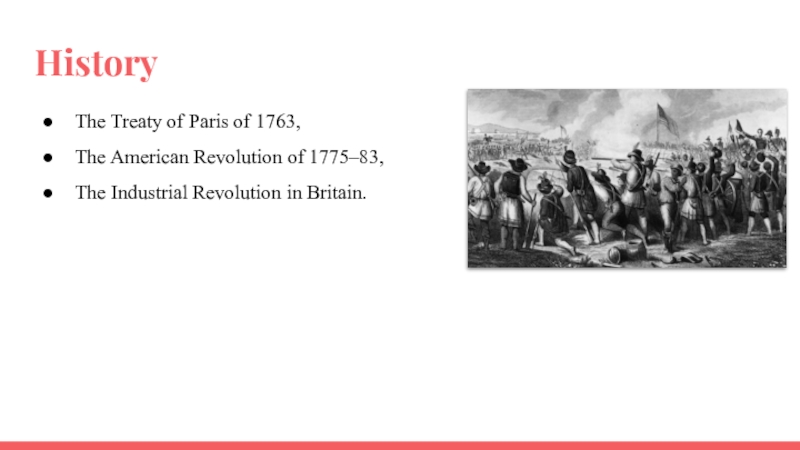
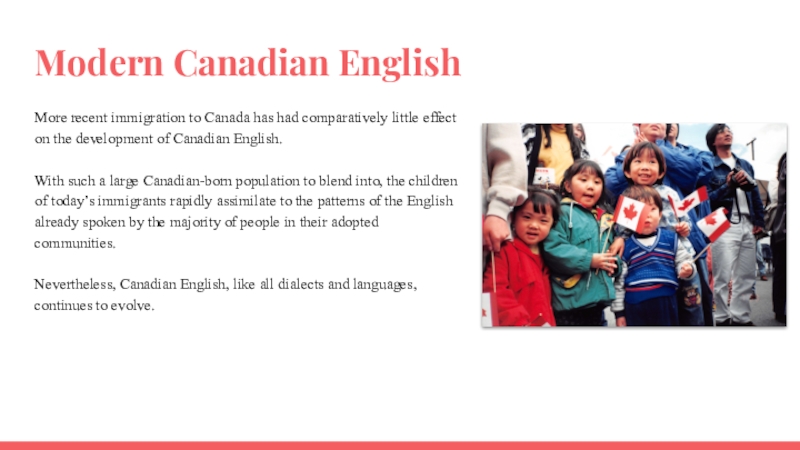
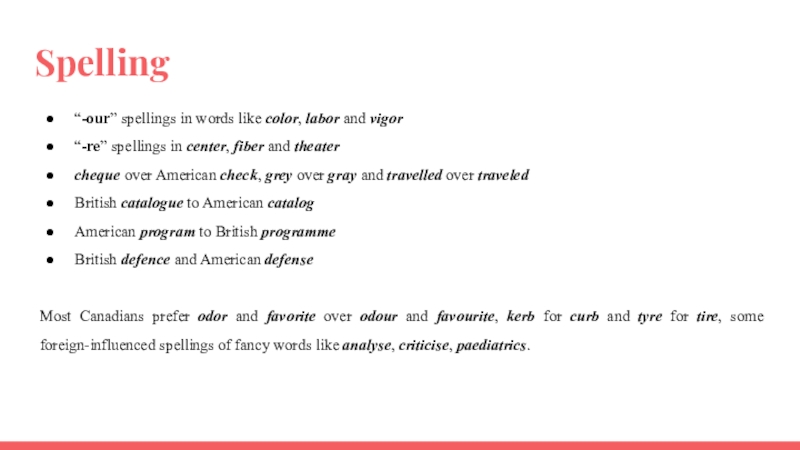
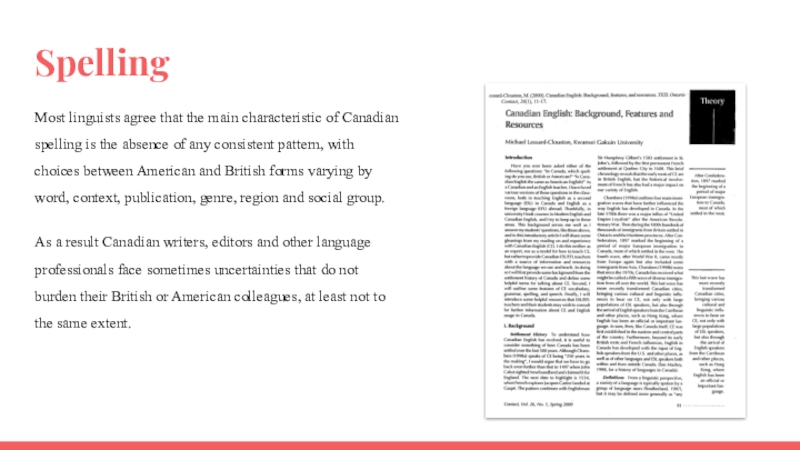

![CANADIAN ENGLISH PronunciationThe distribution of pre-rhotic (before-r) vowels: substituting [a] for [o] before PronunciationThe distribution of pre-rhotic (before-r) vowels: substituting [a] for [o] before inter-vocalic [r]. In a number of](/img/tmb/6/565382/dbdf478e034e7a01af6ccd6f3a639ee7-800x.jpg)

